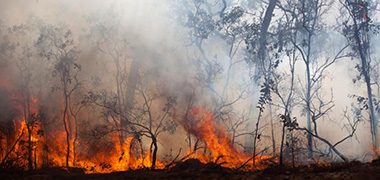
AI Occupational Exposure score unavailable For more insight, research the specific tasks and skills required for the role.
Explore all careersEnvironmental Chemists study and monitor contaminants in the environment, assessing their impact on health and developing remediation strategies.
Get qualified to work as an Environmental Chemist with a course recognised across Australia. Speak to a training provider to learn more.






The average salary for Environmental Chemists is currently $1,538 per week ($79,976 annually). These are median figures that include the salaries for new graduates as well as experienced scientists.
 Courses.com.au Team
Courses.com.au Team
There are approximately 26,300 Environmental Scientists employed across Australia right now, this includes Environmental Chemists. Increase your employability by obtaining supporting qualifications in a specialist field: oceanography, climate science, agriculture, food manufacturing, geology, fisheries, and more.
 Courses.com.au Team
Courses.com.au Team
To become an Environmental Chemist in Australia you need a solid foundation in both Chemistry and Environmental Science. A Bachelor of Science (Chemistry) followed by a Master of Environmental Science is an excellent pathway. Some Environmental Chemists come from an engineering background and advance their professional skills with a research degree in Environmental Chemistry and Ecotoxicology or a Master of Environmental Engineering and Pollution Control.
Source: Australian Government Labour Market Insights 2023
 Courses.com.au Team
Courses.com.au Team
Browse occupations related to Environmental Chemist



For those interested in pursuing a rewarding career in the sciences, Environmental Chemist courses in Melton offer an excellent pathway. Melton, located in the vibrant region of Victoria, hosts various training providers including the esteemed La Trobe University and RMIT University, both of which deliver advanced Higher Education courses tailored for experienced learners. Students can explore specialized programs such as the Bachelor of Science (Chemistry) and the Bachelor of Environmental Science, allowing them to gain a strong foundation in both chemistry and environmental science.
In total, there are four Environmental Chemist courses available in the Melton area for those with prior qualifications. For instance, the Bachelor of Science (Honours) (Chemistry) and the Bachelor of Science (Honours) (Environmental Science) are highly sought-after options for students aiming to deepen their scientific knowledge and enhance their employability in the field. These courses not only equip students with essential skills but also provide networking opportunities with industry professionals in Melton and beyond.
Graduates of Environmental Chemist courses in Melton can explore a variety of related job roles that amplify their career prospects. These roles include Research and Development Chemist, Analytical Chemist, and Chemist. Each position presents unique challenges and opportunities for those ready to apply their knowledge in practical settings, particularly within the Melton region, known for its commitment to environmental sustainability and innovation in science.
Furthermore, the Environmental Chemist role extends into specialised fields such as Biochemist, Materials Scientist, and Ecotoxicologist. As environmental concerns take centre stage globally, professionals equipped with degrees in environmental chemistry will find themselves in demand, particularly in regions striving for sustainable practices. The courses available in Melton prepare students to meet this growing need by providing comprehensive training and education.
Investing in Environmental Chemist courses in Melton not only opens doors to exciting career paths, but it also contributes to the broader fields of Science and Chemistry. As you explore these educational opportunities, consider the renowned training providers such as La Trobe University and RMIT University, which are committed to fostering excellence in scientific education. By enrolling in these programs, students can play an integral role in addressing environmental challenges and advancing their professional journey in the ever-evolving field of environmental chemistry.